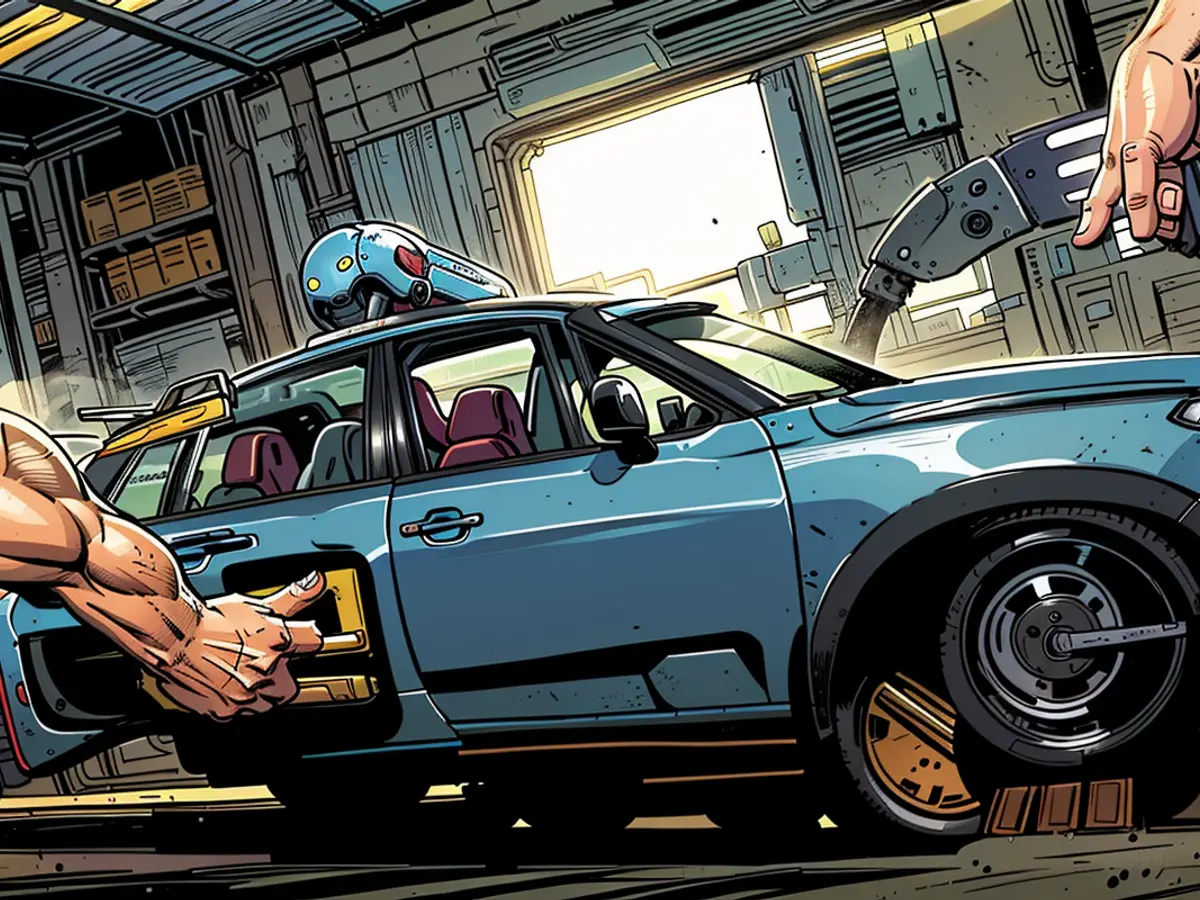Previous Volkswagen head Diess ascribes the predicament to the traffic light coalition.
Volkswagen, like the entire German auto industry, is grappling with issues, as per the views of former CEO Diess. He believes that the German government's electric vehicle policy is contributing negatively to the company's struggles. Diess stated, "The company is struggling due to the slow sales of electric vehicles, which is challenging as we need to meet stricter EU CO2 limits next year."
The German government, Diess criticized, is actively hindering this transformation process. He decried, "The government has created more confusion among car buyers than with the notion of synthetic fuels. The impression given was that conventional fuel cars and gas stations could continue operating in a CO2-neutral manner."
Furthermore, the government's promotion policies for electric vehicles are questionable. Last week, the federal cabinet introduced a tax incentive for company cars with electric drive to boost sales. However, demand for electric cars had plummeted once the state subsidy was withdrawn. The German government abruptly ended the so-called environmental bonus in December due to budget constraints.
"It's short-sighted," Diess commented. "Promotion is in, promotion is out. Expansion of charging stations has essentially come to a halt, yet significantly more electric cars are expected to be sold next year." Diess also noted that about 30% of the workforce at charging startup The Mobility House had to be let go due to this unstructured and confusing situation.
However, Diess admitted that Volkswagen also carries its share of blame. He stated, "The VW brand is lacking in profitability in comparison to other divisions within the company." He emphasized the need for Volkswagen to enhance productivity and efficiency, particularly at German locations. "These are topics that have been ignored for a long time," concluded Diess.
Before his dismissal, Diess advocated for cost-cutting measures at German factories and discussed potential job cuts in Wolfsburg. In early September, his successor Blume initiated a discussion about potential plant closures in Germany and the possibility of ending the employment guarantee, which runs until 2029.
The German government's criticism from Diess extends to its electric mobility promotion policies, as he pointed out that the abrupt ending of subsidies has negatively impacted demand. The government's flip-flopping on promotion strategies has stalled the expansion of charging stations, a crucial factor for electric mobility.








